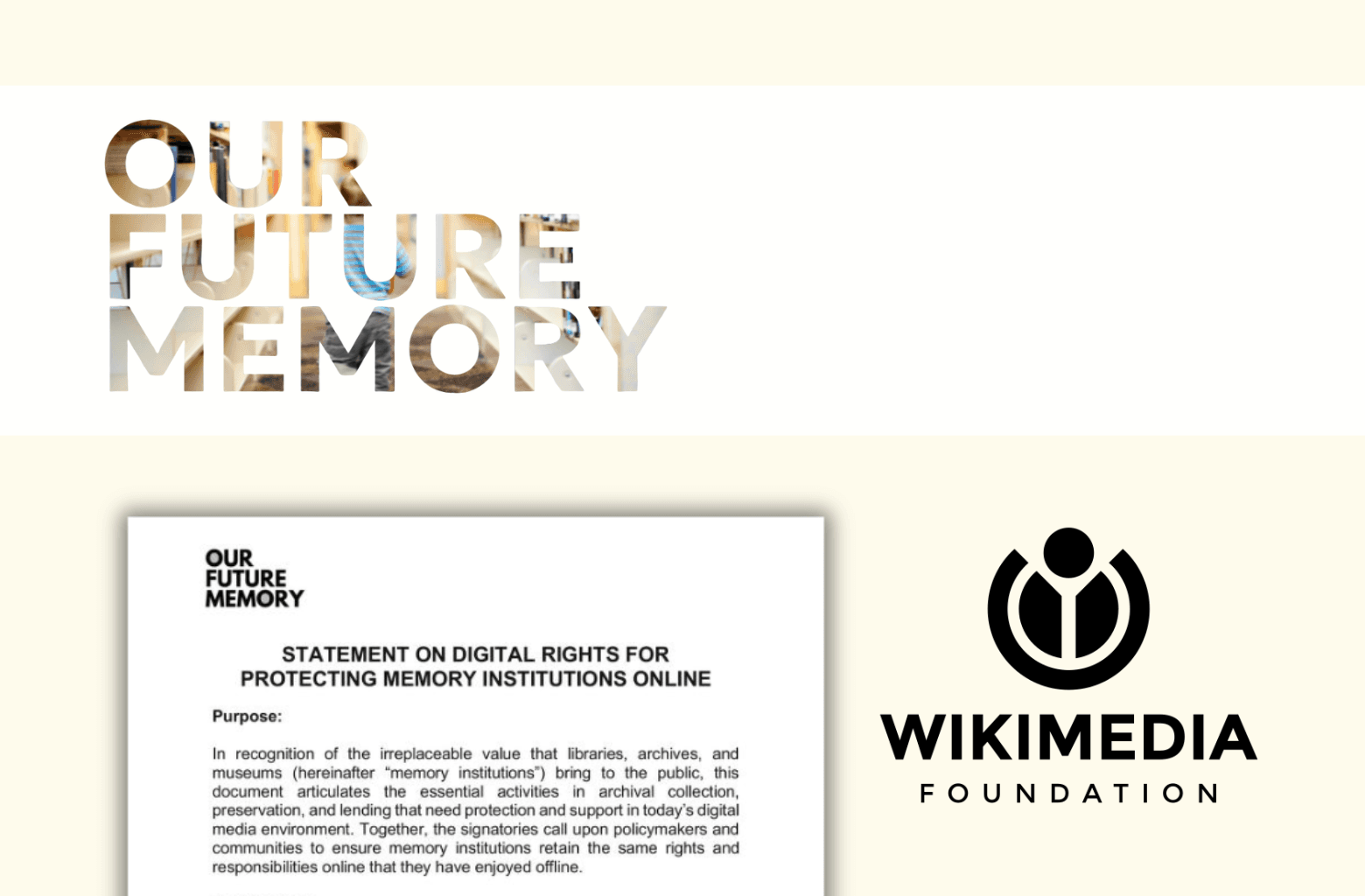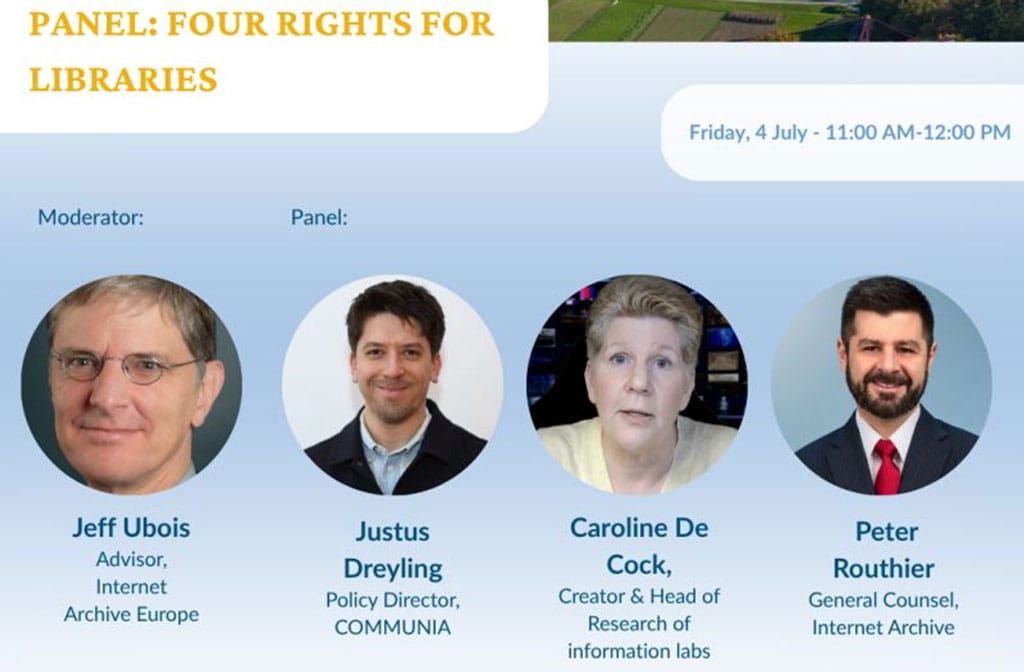The global Our Future Memory campaign to secure digital rights for libraries, archives, and other memory institutions has gained another powerful ally.
Wikimedia, one of the world’s leading champions of free knowledge and open access, has signed the Statement on the Four Digital Rights of Memory Institutions, joining a growing number of organizations worldwide that are calling for the legal rights needed to preserve and provide access to knowledge in the digital age.
This endorsement carries significant weight. Wikimedia projects, including Wikipedia, Wikimedia Commons, and Wikidata, are pillars of the digital knowledge ecosystem. Their commitment to the campaign underlines that safeguarding the rights of cultural and memory institutions is essential not just for professionals in the field, but for everyone who relies on free and open access to information.
“Wikimedia projects and memory institutions share a common mission: to provide access to the world’s knowledge and cultural heritage. Wikimedians and memory institutions enjoy a long history of collaborative partnerships, through projects like GLAM-Wiki and Wikimedian in Residence programs that help expand access to galleries’, libraries’, archives’, and museums’ collections on Wikimedia projects. The Wikimedia Foundation is proud to stand together with these institutions to safeguard their ability to continue the valuable work of preserving and sharing the world’s knowledge and culture, online and offline.”
– Stan Adams, Public Policy Specialist for the Wikimedia Foundation
By signing the Statement, Wikimedia reinforces the growing international movement that calls for legal reform on four essential rights that ensure long-term preservation and access:
- Right to Collect
- Right to Preserve
- Right to Lend
- Right to Cooperate
These rights are not abstract. They underpin the ability of institutions to continue their public mission: collecting digital materials, preserving them for future generations, lending them fairly, and cooperating across borders to make knowledge accessible to all.
Just as IFLA’s endorsement demonstrated global library support, Wikimedia’s decision signals that open knowledge communities stand united with memory institutions worldwide. Together, they are shaping the legal foundation needed to keep our collective memory alive in the digital era.



